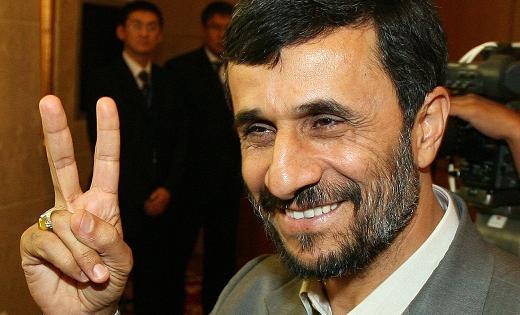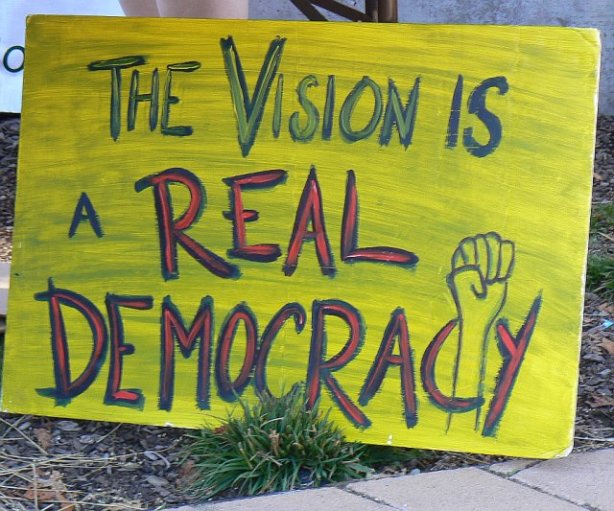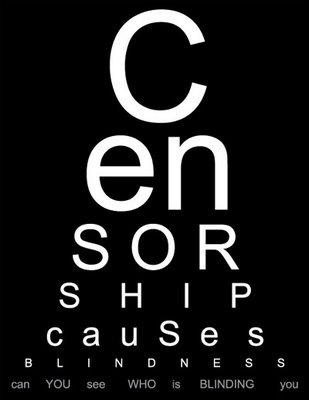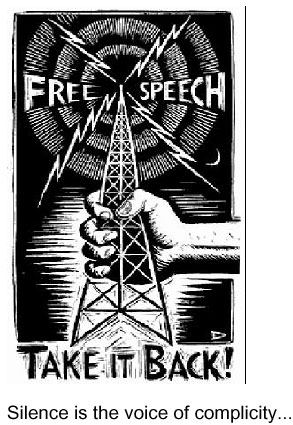Illustration: Edd Aragon
Cane toads of the air thrive on stupidity
Elizabeth Farrelly, Sydney Morning Herald
I’m always amazed by how readily we let our buttons be pushed. It’s almost as though we want them to manipulate us. As though we like it. “Them”, here, obviously includes politicians, advertisers and spin merchants, but the worst offenders, partly because they’re the least explicit, are “shock jocks”.
They are the cane toads of contemporary culture: ugly, ubiquitous, toxic to most other life forms and adept at using their peculiar behaviour to force change in ours.
It’s not so much that they’re rude, lowbrow or just plain wrong, although these, too, are often the case. The most destructive effect of the shock-jockariat is the poisoning of the logic-well itself; followed by the incremental death of the argument tree that is root and branch of intelligent civilisation.
Take Alan Jones. Though it pains me to say it, he is forcing me to change my mind. Not on climate change, or cycling, or the right to public protest, all of which he opposes, but on censorship.
Foucault argued that unreason died with the enlightenment. But the shock-jock phenomenon proves repeatedly that if you make an argument sufficiently idiotic, the sheer scale of stupidity makes it hard to defeat. It was highlighted for me this week by a letter that argued, as Jones does, that anything so small as 0.04 per cent – the proportion of CO2 in the atmosphere – couldn’t possibly matter. “Please let me know,” concluded my correspondent, “how anyone could believe that CO2 is responsible for climate change?”
It’s like arguing that a virus is too small to give you AIDS. Or that a lethal dose of heroin, at about 0.0007 per cent of your body weight, couldn’t possibly kill.
Never mind that applying the same logic to asylum seekers would make you wonder what all the fuss was about (our total asylum applications – 8150 last year, including dependants – being a mere 0.04 per cent of the population.)
These climate-change rants deliberately ignore everything about eco-balance, homeostasis, the greenhouse effect and tipping points we’ve all been taught since primary school and instead raucously promote a red herring.
Yet it’s neither stupidity nor ignorance on Jones’s part. Quite likely he’s read Robert Thouless’s list of dishonest tricks in argument, including caricature, anecdote and non sequitur. Or even Schopenhauer’s list. Bombast, hyperbole, personal insult; certainly he employs most of them.
No, Jones’s position is more cynical. It’s a deliberate appeal to (our) stupidity by (his) intelligence. And it’s not just Jones, or just Sydney, or just climate change.
What’s truly alarming is how accepted it has become that these popular voices deliberately flout the rules of argument. And that, in doing this, they so manipulate the vote that politicians move to appease.
The Adelaide author Ruth Starke has written of her encounter with a South Australian shock jock, Ray Fewings. At issue was a book – Nicki Gemmel’s Cleave. Written for adults, it contained sexuality and was selected by a 12-year-old from the school library. Mother appalled. Controversy ensued.
“Porn!” screamed the jocks. When Starke suggested the mother might have discussed the book with her daughter, Fewings cut her short for “attacking the mother” and accused her of wanting “open slather” so that “12-year-olds could read filth”.
Fewings then twisted this into “What gives Ruth Starke the right to dictate to parents what they should discuss with their children?” and “You heard from a writer who wants open slather to write whatever she wants”. Caricature, insult, emotive language; all core shock-jock stock.
Jones’s infamous carbon tax interview with Julia Gillard in February was scarily similar. First he repeatedly reprimanded the Prime Minister for being 10 minutes late. “I’ve got my job and you’ve got your job . . . 7.10 is 7.10 isn’t it? . . . We’re all busy.” This was followed by dozens of cuttings-in and talkings-over, plus an outright accusation of lying: “There are people now saying your name is not Julia but Ju-liar, and . . . we’ve got a liar running the country.”
Ditto with Clover Moore last May. As the lord mayor arrived Jones was already in a lather, voice raised, epithets at the ready, describing Sydney’s new cycleway as “the virtual destruction” of the city. “Thirty-four thousand votes,” he told her, “you virtually speak for nobody . . . Clover, you haven’t got a clue what you’re talking about . . . For godsake, Clover Moore, can’t you read?”
If all else fails, Schopenhauer recommends clouding the issue through bluff, confusion and induced anger. But beneath the barrage of emotion and insult, the technique here is to make scapegoats of cyclists as the cause of all that angers motorists (when in truth, every bike is a car taken off the road).
Why do politicians tolerate it? Why do we? My theory is this. Most shock jocks, and their audiences, are pretty long in the tooth. Perhaps there’s just a certain kind of person who, as the hormones start to recede, needs this pseudo-emotion to feel alive.
Yet it’s dangerous. We’re used to arguments about civilisation but seldom do we notice just how deeply argument itself underpins civilised life. In the classical tradition, this – rhetoric – was taught in schools. As a basic thinking skill, it came to govern public discussion and debate.
We could do the same. The rules of logic are not difficult. As taught to philosophy sophomores, they cover deductive and inductive reasoning, true and false syllogisms, building arguments with consistency, validity and soundness and – crucially – how to spot a fallacy. Pretty basic.
Without them, however, parliamentary democracy would be impossible. We’d never have risen from the yah-boo of the playground or the might-is-right jungle of silverback tribalism.
You don’t have to look far to see what happens without logic’s civilising structures; it’s the cultural equivalent of those Indonesian abattoirs. Yet this is where shock jocks are coming from and where, if they had their way, they would take us, forcing me to wonder whether censorship mightn’t be reasonable after all.
But there is hope.
Last week, after my cane toads column, several Queenslanders wrote in to say they hadn’t actually seen serious toad numbers for some time. Something, they inferred, is killing them off.
Maybe it’s the same with shock-jockery. We can only hope it happens before it irreparably harms our civilisation, as well as our climate.
Sydney Morning Herald columnist, author and architect
More Elizabeth Farrelly articles
![]()




















